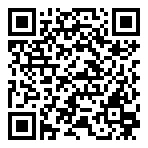Jejakkarbonku.id launching
The climate crisis emergency and the negative impacts of the crisis are increasingly visible and will affect global economic activity and even our daily lives. The crisis triggered by greenhouse gas (GHG) emissions from human activities needs to be addressed with a global collective effort to avoid worsening climate change. To overcome this climate crisis, countries in the world through the United Nations have agreed on the Paris Agreement in 2015, in which the level of GHG emissions must be reduced as low as possible until it can reach Net Zero Emission (NZE) by 2060. The Indonesian government itself has ratified the Paris Agreement. and has expressed its commitment to reducing GHG emissions by preparing a long-term vision to develop a low-carbon development pattern in line with the targets stated in the Low Carbon Compatible with Paris Agreement (LCCP) scenario.
To succeed in the Net Zero Emission program, indeed, it takes the role of all parties, including the community. As an initial step to contribute to reducing GHG emissions, it is critical to identify GHG emissions that are removed from daily activities. Once identified, we can develop strategies to reduce GHG emissions and implement them.
Therefore, to help identify GHG emissions from daily activities, the Institute for Essential Services Reform (IESR) has developed a tool called Jejakkarbonku.id, which is a further development of a similar tool that has been launched by IESR in 2012. , there are new features that users can use to actively participate in combating the climate crisis, including updated carbon calculator data, recommendations for reducing carbon footprints, and reminders.
To introduce new features and develop this tool, IESR plans to hold the launch as well as a series of follow-up activities aimed at inviting Indonesians to understand and care more about their respective carbon footprints.
Speaker
-
Fabby Tumiwa - Chief Executive Officer (CEO) - IESR

